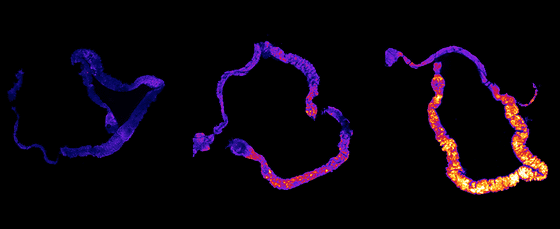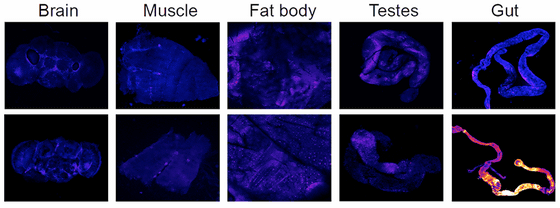What is needed to avoid death, as the 'mechanism leading to death from sleep deprivation' is elucidated?

Insufficient sleep not only causes drowsiness, fatigue, and decreased work precision, but eventually leads to death if you have not been sleeping for days. A research team at the Harvard Medical School has revealed the mechanism by which such lack of sleep leads to death.
Sleep Loss Can Cause Death through Accumulation of Reactive Oxygen Species in the Gut: Cell
https://www.cell.com/cell/pdf/S0092-8674(20)30555-9.pdf
Sleep, Death and… the Gut? | Harvard Medical School
https://hms.harvard.edu/news/sleep-death-gut
Sleep is an important factor for living things, but the mystery of 'why creatures sleep?' has not yet been clarified. However, in an experiment published in 1989, all the rats that were forced to maintain their insomnia had died, and it has been said that 'animals die when they remain in a state of sleep.'
The research team of the Department of Neurobiology, Harvard University, revealed the relationship between sleep and death. The research team conducted an experiment to 'make the Drosophila sleepless' by breeding Drosophila genetically modified so that neurons become heat-sensitive. In this experiment, it was found that if the Drosophila melanogaster insomnia lasts for more than 10 days, the mortality rate will rise sharply, and that normally a Drosophila melanogaster, which has a life span of 40 days, will die 100% in 20 days. In Drosophila melanogaster, it was also confirmed that 'it will die if it does not sleep.'
When the research team examined the body of Drosophila melanogaster, which remained insomnia, it found that a group of molecules highly reactive to oxygen molecules called reactive oxygen species accumulate in the intestine. Below is an image of the 'Drosophila intestine' used in the experiment. The intestines on the 1st day of insomnia, the 7th day of insomnia, and the 10th day of insomnia are arranged in order from the left, and the part where active oxygen species are accumulated is colored. It is a visual indicator that the concentration of reactive oxygen species increases in the intestine as insomnia continues.

Experiments have also found that during insomnia, reactive oxygen species accumulate only in the intestine. Looking at the image below, Brain (Brain), Muscle (Muscle),

To investigate whether this phenomenon also occurs in organisms other than Drosophila melanogaster, the research team conducted additional experiments using mice, and reactive oxygen species were accumulated in the small intestine and large intestine of mice that remained insomnia for 5 days. Was confirmed. From this, the research team explained that in different organisms, sleep deprivation does not change the accumulation of reactive oxygen species in the intestine.
In addition, the research team established that intestinal reactive oxygen species generated by insomnia are responsible for death, by adding 'a diet containing antioxidant compounds to Drosophila melanogaster to remove intestinal reactive oxygen species. We conducted an experiment called 'to harmonize.' As a result of the experiment, the Drosophila melanogaster, which was administered with the antioxidant compound, continued to operate as usual despite the fact that it was insomnia, and showed the same lifespan as a normal individual. In addition, Drosophila melanogaster, which has been genetically engineered to overproduce antioxidant enzymes in the intestine, showed a life span equivalent to that of a normal individual even after insomnia. Oxygen species play a central role in death from insomnia.'

Regarding the experiment of continuing to administer antioxidant compounds to Drosophila melanogaster, Associate Professor Dr. Dragana Rogulja of the Department of Neurobiology, Harvard University, who conducted the study, said, 'Every morning, every member of the team was incredibly worried about Drosophila. By neutralizing the reactive oxygen species in the intestine, the sleepless fly survived.” ``We don't know why sleep deprivation causes the accumulation of reactive oxygen species in the intestine, or why accumulation of reactive oxygen species leads to death,'' said research team Yosef Kaplan Dor. He said that he will work on elucidating the biological pathways that lead to the accumulation of reactive oxygen species in and their subsequent death.
Related Posts:







